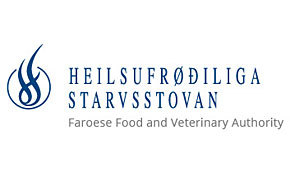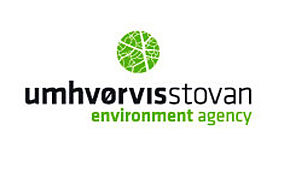Food Safety and Control – International Standards
Faroese fisheries and aquaculture are multifaceted. They not only contribute to global food security, they also supply international markets with high quality products, providing the people of the Faroe Islands with sustainable livelihoods.
The Faroese seafood industry is a highly industrialised, efficient and competitive industry. Over 70 approved fish processing plants, factory vessels and freezer vessels in the Faroe Islands are engaged in the processing and storing of fish and seafood products. Raw material for production is bought at the Faroese Fish Market or directly from boats or fish farms.
Catches brought ashore in the Faroe Islands are either exported fresh, or processed mainly into fresh or frozen fillets and portions, as well as other products. Pelagic fish such as mackerel and herring is also graded and frozen onshore in the Faroe Islands, exported filleted, headed & gutted, whole frozen and other products. The Faroe Islands export shellfish species such as shrimpsscallops and langoustine.
Faroese Atlantic salmon is exported fresh whole, in fresh or frozen fillets and portion, and smoked fillets and portions. Salmon by-products such as belly flaps and salmon heads are also exported – and salmon skin is used in the fashion industry. Dried fish heads and other dried seafood products are also produced, as well as a modern and competitive fish feed production.
A number of modern factory trawlers also process and freeze fish on board within hours of catching, guaranteeing the best possible freshness. These products mainly include cod, haddock and saithe fillets, headed and gutted cod, haddock and Greenland halibut and shrimp.
Salted fish is one of the Faroese fishing industry’s trademarks. The Faroese began salting fish in the late 19th century, exporting it to southern Europe. Expertise and good quality fish ensure a continued strong position on the market for salted fish products from the Faroe Islands.
Food safety standards and regulations
The Faroese Food and Veterinary Authority is the authority responsible for monitoring, control and inspection of food safety and hygienic production of consumable products at approved plants.
The Food and Veterinary Authority also provides the official link to foreign scientific institutions within the seafood processing industry.
Approval of fish plants and on board processing vessels requires an internal control system which is in accordance with HACCP rules, in order to ensure that the provisions of the Food Act, and associated regulations, are met at all stages of production and sales. The certification of shore-based fish processing plants stipulates that the water should be examined at least 12 times a year. Fishing vessels are only permitted to unload their catches at one of the twenty or so landing centres that have been approved by the Food and Veterinary Agency.
In order to be certified to process food and additives for export to the European Union, Faroese fish plants, factory vessels and freezer vessels must be approved in line with all relevant EU directives on food safety. The Food and Veterinary Agency provides regularly updated overviews of all certified processing plants and facilities, including vessels.
Environmental control and monitoring
The Faroese Environment Agency is responsible for monitoring environmental quality and issuing environmental approval for fish processing facilities, including salmon and trout processing plants. The aim is to minimise all possible sources of pollution from processing plants, as well as to ensure that the best available technology (BAT) is used, with limit values set, especially for waste water outlets.
The monitoring of pollutants in the marine environment is ongoing in the Faroe Islands, including regular monitoring of both farmed and wild fish. Environmental pollutant monitoring in wild fish is based on guidelines adopted by the OSPAR Commission for monitoring contaminants in biota, while monitoring of mercury in white fish for the export market has been carried out since the 1970s.
Full traceability
The Faroese seafood industry has complete traceability and transparency throughout every step of production, and traceability systems enable buyers to trace Faroese seafood throughout the entire production chain; in fisheries from fishing to market, and in aquaculture all the way from roe to export, including all feed used for fish farming.
Veterinary Agreement between the Faroe Islands and the European Union
Since 2001 the Faroe Islands have had a veterinary agreement with the European Union, which is an integral part of the Faroe Islands/EU Trade Agreement. Under the terms of the veterinary agreement, the Faroe Islands implement all relevant EU legislation related to food safety in fisheries and aquaculture production. In practice, this means the Faroe Islands are on an equal footing with EU member states when it comes to veterinary standards for Faroese fish exports, as well as imports of fish and other products from the EU to the Faroe Islands.


